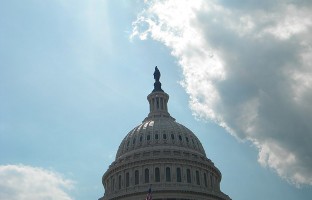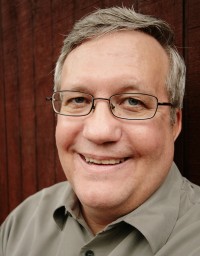Governing desire
Outside Paradise, government will never be perfect. But that's no reason to give up on it.
Recently some friends were debating the role of government. Before long, a version of libertarianism, that degenerate form of liberalism now so popular in American politics, reared its head. "Government," said one of the disputants, "has an important place, but it is a necessary evil. Without sin, we would need no government."
At this point I left the sidelines to join the game. That human societies need—or want—government only because of sin is a common assumption. A terribly wrong assumption.
As Augustine teaches, government is about the right ordering of desire, and desire is not innately evil. It is not wrong to find gold desirous, Augustine said. After all, gold is a creation of God, and all that God created is good. Gold is pretty, durable and scarce, and as such it is desirable. What is sinful is to desire gold inordinately, in an unordered way. It is wrong to desire gold above all other goods, including the right of property, which is but to say that it is sinful for me to steal your gold. It is wrong to value gold above the good of care for children, or at the price of despoliation of the environment, or at the expense of those peoples who first owned the land where treasure has been found. There are all kinds of ways in which gold can be inordinately desired—but gold is still a good creation of God.
Read our latest issue or browse back issues.
Likewise, it is not sinful of me to desire my dog and his affections. It is wrong for me to love my dog more than I love my wife, child or neighbor. And most of all, it is wrong to love my dog more than I love God.
God is the single underived and unconditional good from which all other goods are derived. So rightly ordered desires are subordinated to the love of God, and all that justly and gracefully flows from that primary love.
To return to the subject of government, there is government even in Paradise, in a world free of sin. That form of government, with all other desires perfectly aligned around the love of God, is called theocracy. When I made this point, my libertarian-leaning friend gleefully objected.
"Aha!" he said. "Theocracy is fine in Paradise, but it is dangerous and prone to great evil in the hands of sinful, fallible human beings. This side of Paradise government is nothing more than a necessary evil."
Not so quick, I replied. I agree that theocracy outside Paradise is filled with perils. But the fact that we can't achieve a theocracy is no reason to give up on governing our desires altogether, any more than the fact that we can't love our children perfectly entails giving up on loving them as well as we can.
By all means, let government be properly restrained and checked, and let freedom of religion be regarded as our first and most important liberty. Then let government flourish under these conditions.
One of government's roles, as the famously cited Romans 13 passage indicates, is to function as a necessary evil, restraining criminal activity. But government can (and does) also serve to order our desires in ways that do not focus on the chastisement of sin. Government can educate and encourage ordinate desiring. It can do so not only by punishing criminals but also by providing schools and parks and libraries and transportation (to take a few examples) for the benefit of all its citizens—rich, poor or in between.
As Augustine understood, humans are social creatures. We are created equal in Adam, by the same God. We fall as one into sin (also in Adam) but are also redeemed as one (in Christ). We are as a group, or as nation groups, far more than a collection of individuals: we are neighbors, responsible for the neighborhood and its good. Perhaps nothing illustrates this so boldly in our day as does care of the environment. Even if only one person or a few people pollute a lake, it is ruined for all. The inordinate desires of some lessen the shared social world for everyone.
So, at least, I argued. My libertarian friend was not totally convinced, but he was rethinking the matter. And then he muttered, "But don't tell me you enjoy paying taxes."
I allowed that I don't. But I view paying taxes like I do eating vegetables or exercising regularly: it's not fun at the time, but in the long run it results in greater health and general happiness. Rightly ordered desires rate vegetables over fried food and exercise over indolence—and paying taxes in support of good government over thinking that government is no more than a necessary evil.








